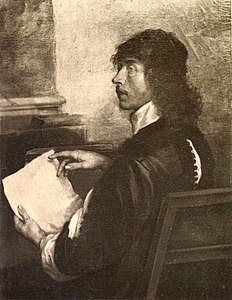Analysis of The Primrose
Thomas Carew 1595 (West Wickham) – 1640
Ask me why I send you here
The firstling of the infant year;
Ask me why I send to you
This primrose all bepearled with dew:
I straight will whisper in your ears,
The sweets of love are washed with tears.
Ask me why this flower doth show
So yellow, green, and sickly too;
Ask me why the stalk is weak
And bending, yet it doth not break:
I must tell you, these discover
What doubts and fears are in a lover.
| Scheme | ABCCDEFCGHII |
|---|---|
| Poetic Form | |
| Metre | 1111111 0110101 1111111 111111 11110011 01111111 11111011 11010101 1110111 01011111 11111010 110110010 |
| Closest metre | Iambic tetrameter |
| Characters | 402 |
| Words | 84 |
| Sentences | 3 |
| Stanzas | 1 |
| Stanza Lengths | 12 |
| Lines Amount | 12 |
| Letters per line (avg) | 26 |
| Words per line (avg) | 7 |
| Letters per stanza (avg) | 313 |
| Words per stanza (avg) | 82 |
Font size:
Submitted on May 13, 2011
Modified on March 05, 2023
- 25 sec read
- 96 Views
Citation
Use the citation below to add this poem analysis to your bibliography:
Style:MLAChicagoAPA
"The Primrose" Poetry.com. STANDS4 LLC, 2024. Web. 1 May 2024. <https://www.poetry.com/poem-analysis/36189/the-primrose>.


Discuss this Thomas Carew poem analysis with the community:
Report Comment
We're doing our best to make sure our content is useful, accurate and safe.
If by any chance you spot an inappropriate comment while navigating through our website please use this form to let us know, and we'll take care of it shortly.
Attachment
You need to be logged in to favorite.
Log In